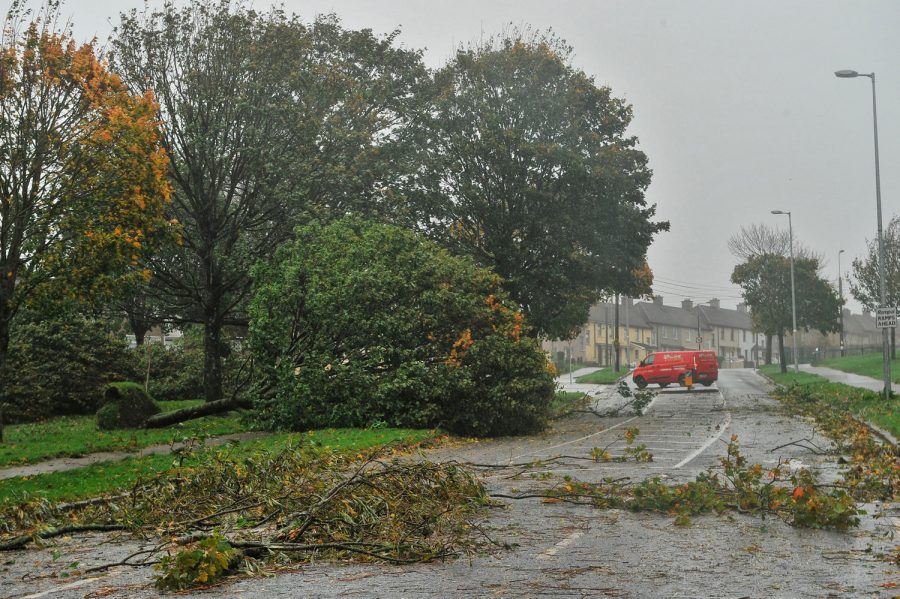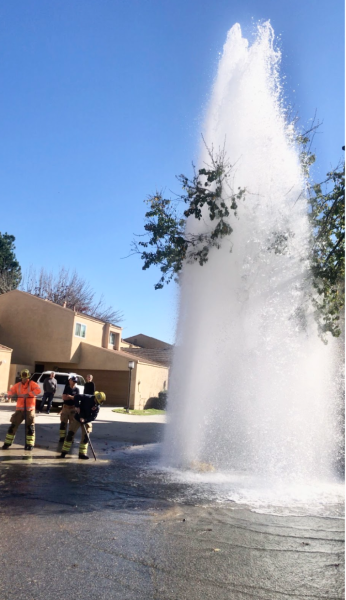An Unexpected Diaster
Fallen trees in Farranree during as a result of Hurricane Ophelia.
December 12, 2017
Hundreds of flights were cancelled, schools and universities were closed, and three people were killed as the remnants of Hurricane Ophelia tore through Ireland on Monday. The storm is projected to move into the British Isles, likely hitting Scotland and England with high-speed winds and damaging rain.
Ireland went into red alert as it was struck with winds that were over 100 mph, tearing down trees and cutting off electricity for over 250,000 people (The Irish Times). BBC Ireland’s Chris Page stated that the hurricane was “the most severe storm to hit Ireland in half a century, “causing heavy flooding and leaving debris scattered everywhere.”
Notably, the sky and the sun turned a strange, eerie shade of red and orange in the nearby UK. This was because of dust from the Sahara Desert that Hurricane Ophelia picked up as it made its way northward. Additionally, smoke and particles from the wildfires in Portugal and Spain may have also contributed to the phenomenon, as the hurricane grew close to the countries on its way towards Ireland (CBS News).
As of Monday, Reuters reported that roughly two hundred flights from Ireland’s two main airports were cancelled because of the storm. More cancellations are expected as the storm moves through the other regions of the UK. Hundreds of roads were blocked because of the fallen trees, while pieces of roofs flew off the top of some buildings. Three people died in Ireland, two being a man and a woman who were both killed because trees fell on their cars. The third victim, a man, was killed because of an incident in which he was using a chainsaw to try and clear a fallen tree (Reuters).
At a press conference, the chairman of Ireland’s National Emergency Coordination Group said that “there are still dangers out there but the cleanup has started in some areas and the job of getting the country back to work has begun.” Even before the storm fully reaches Scotland and London, there are already flood warnings issued in locations across those regions. Winds are expected to reach gusts of at least 70 mph in Scotland, which is already bracing itself for the storm.
Europe is known for having very few hurricanes, as the colder waters are not suitable for hurricanes to form. Sarah Chen (10) pointed out that
“this is after a series of erratic weather across the planet”
, which might mean there could be more unusual natural disasters in store. Overall, Hurricane Ophelia was a rare occurrence that luckily did not do quite as much damage as previous hurricanes in different regions, but may be a sign that the world has more in store.





















